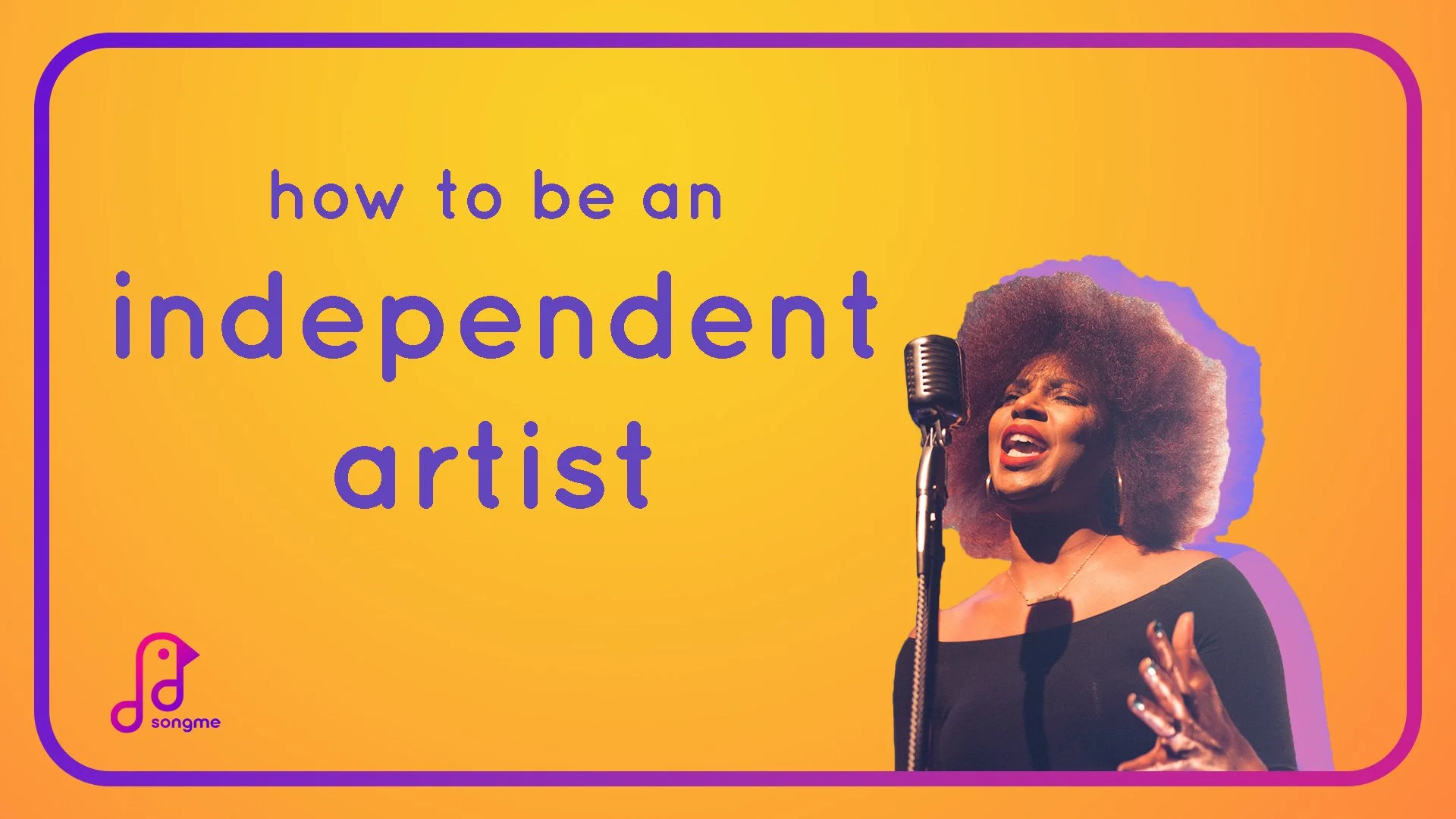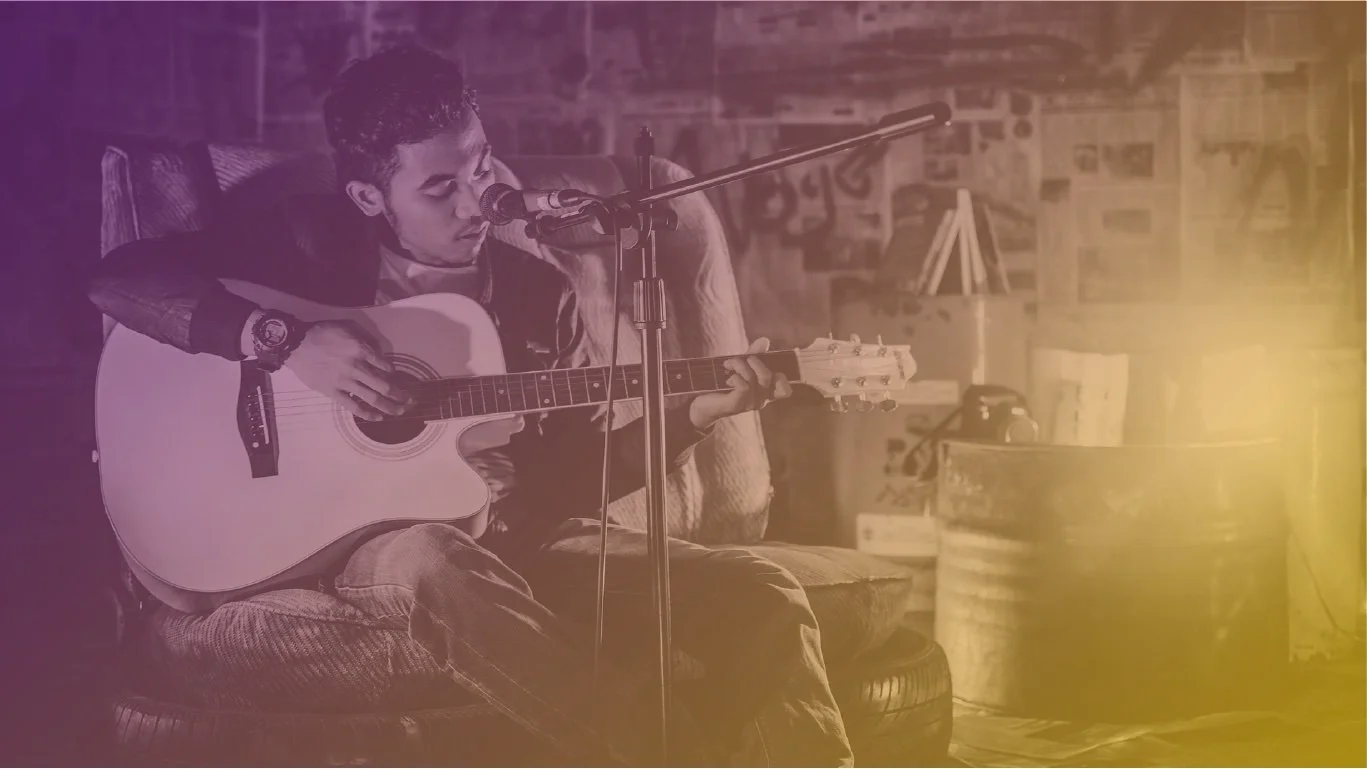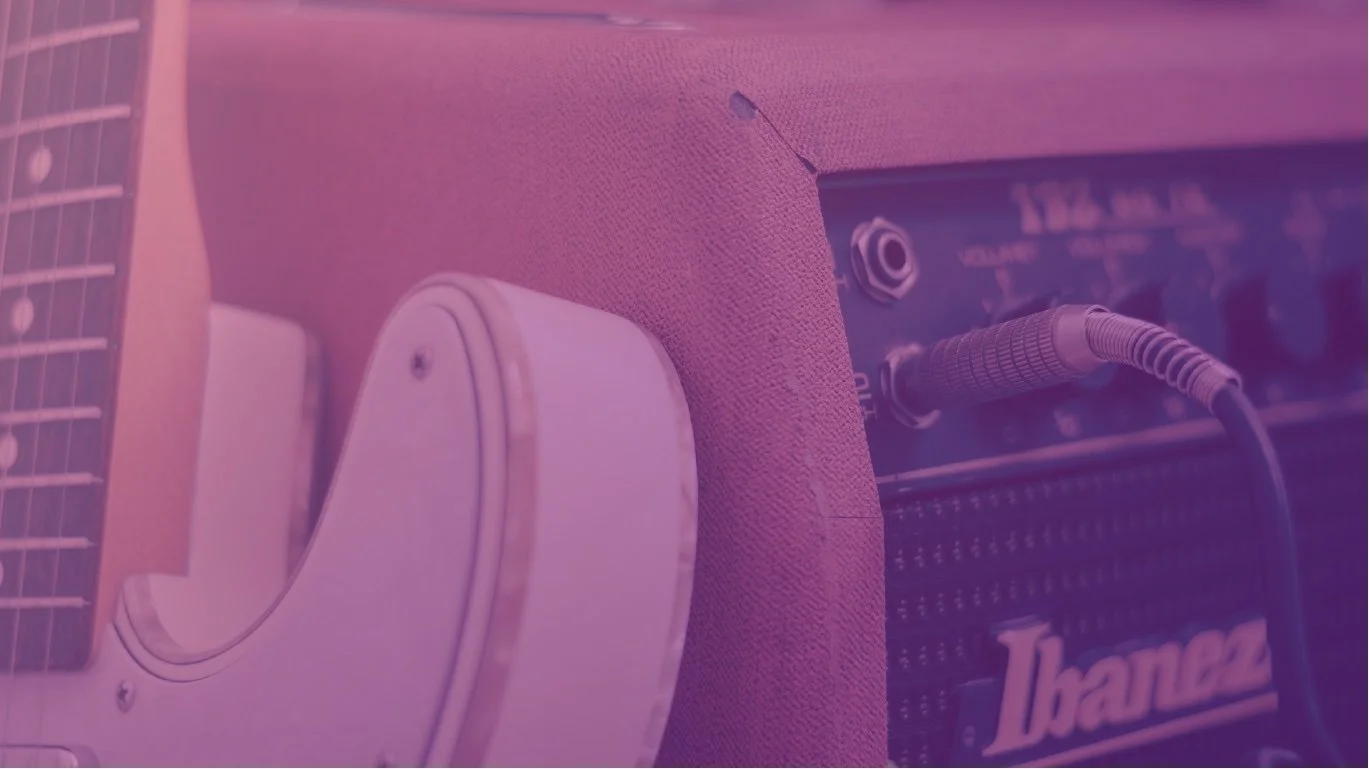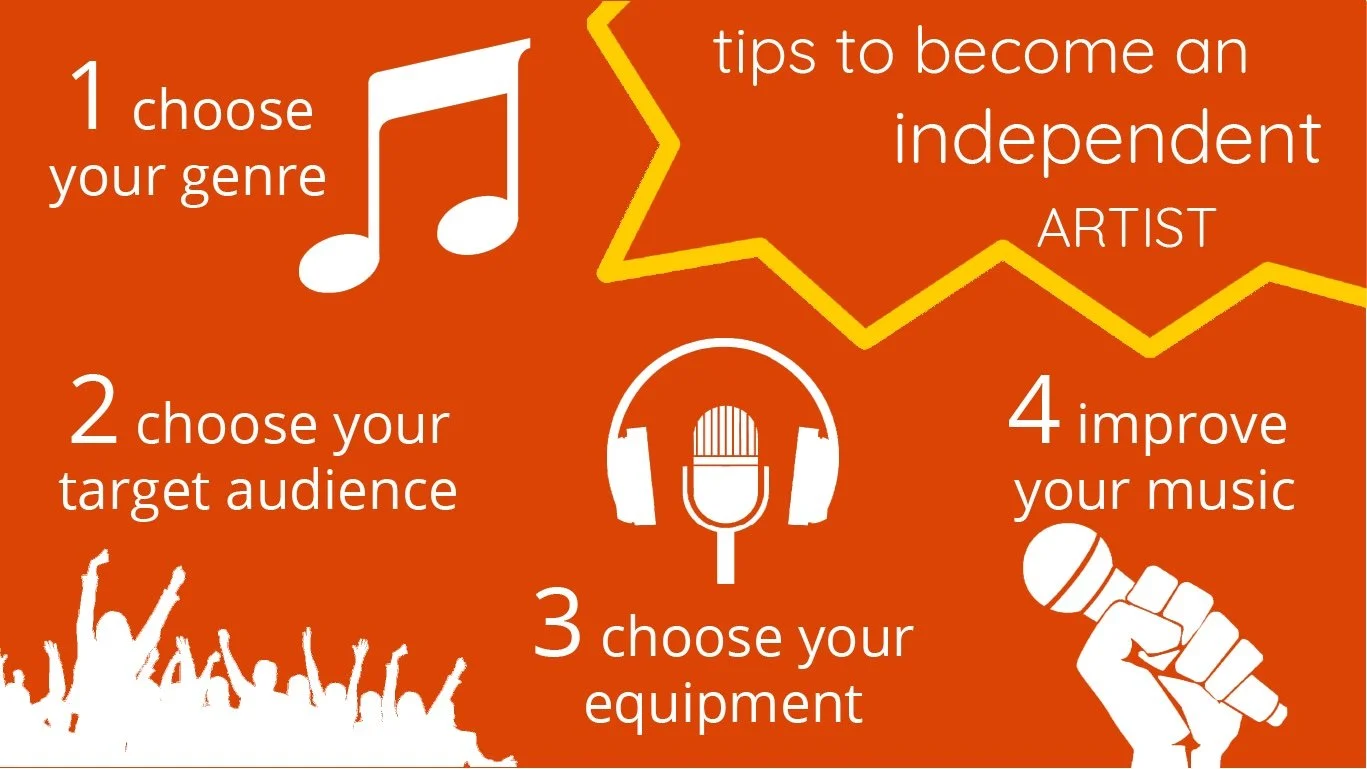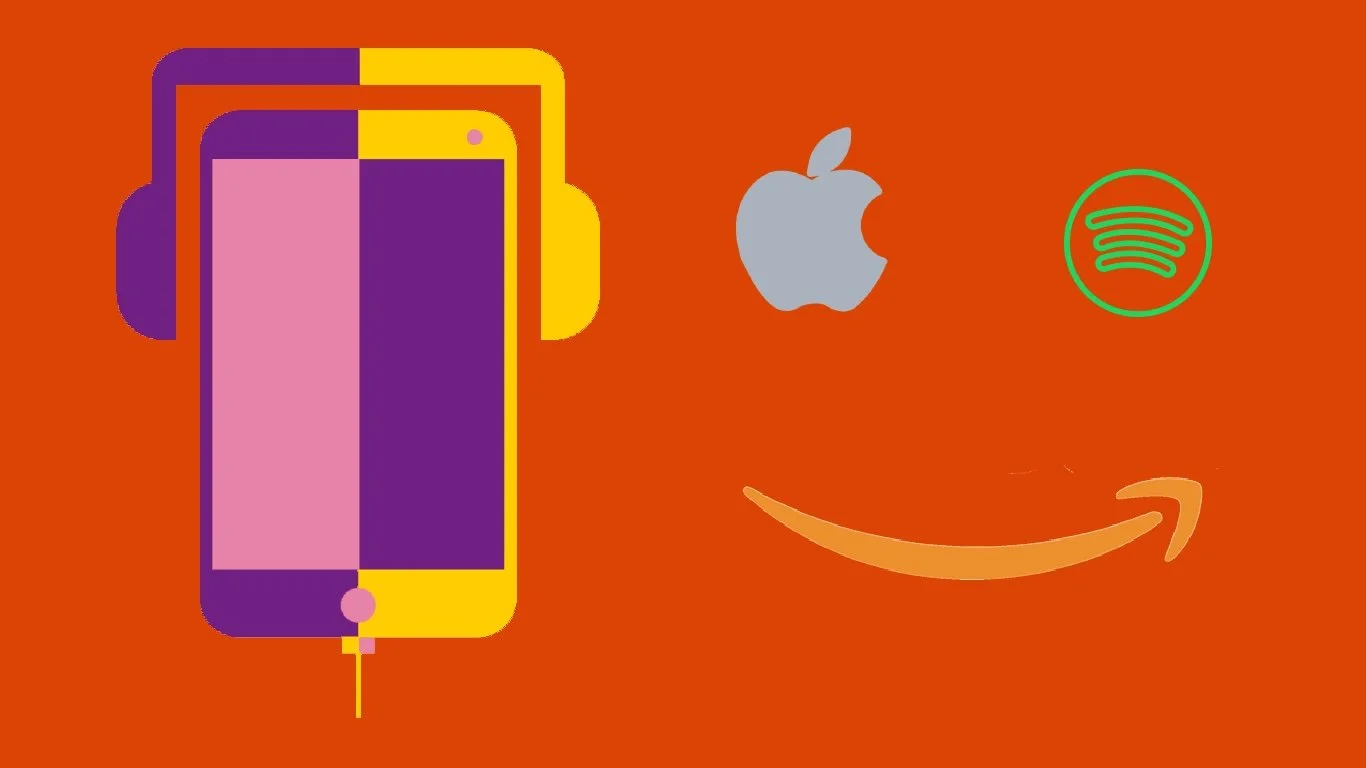How to Be an Independent Artist
Do you want to be an independent artist? In this blog, I will be showing you tips on how to become one and how to promote your music and earn money as an independent artist.
Being an independent artist has become popular nowadays. In the past, for a musician to become popular, they had to sign contracts for record labels to promote and produce their music. There were no streaming services or even social media for new artists to release their music, so artists had to rely on the radio, concerts, and even MTV to spread their music to new fans. Without the resources from record labels and the media, new artists struggled to enter the music industry and advance their careers.
After the rise of the internet and music streaming, a new wave of independent artists swept the music industry as fans began discovering indie artists and following them through Spotify, Pandora, and social media platforms. Musicians no longer have to rely on major record labels to release their music. Now, they can play and release their music at home or in their studio freely without taking big leaps.
What is an independent artist?
According to a blog from Point Blanket Entertainment, an independent artist, also known as an unsigned artist or band, is a “musician or musical group not under a contract with a record label.”
Many independent artists are successful without record labels and some gain as many fans as artists who are signed to record labels.
Most independent artists start their careers by playing and practicing their music just like musicians who would later sign into record labels. They may have basic equipment and software to create compelling music, or they may have a studio filled with a luxurious and advanced music setup to play the highest quality songs. No matter what their financial or educational backgrounds are, many independent artists begin making music and improving it until they become the biggest hits in the music industry.
The benefits of being an independent artist
There are pros and cons to being an independent artist, but independent artists have many benefits that signed musicians do not.
First, independent artists have full control and rights to their music. According to Icon Music, independent artists have control over “distribution, marketing, artwork, messaging, deadlines, and more.”
Signed artists have little control over promoting and distributing their music as record labels, mostly the major ones, do most of the decisions involving a signed musician’s music. Independent artists, on the other hand, have complete freedom over their music, and since they have full rights to their songs, they can distribute and sell them without the approval of record labels. If you desire full control and freedom as a musician, being an independent artist is for you.
Second, independent artists can have all of their profits from their music. That’s right! You can keep 100% of the money that you gain from selling your music. Whereas singing with a record label would leave you with lesser royalties as the record label takes a percentage of the signed musician’s profit.
Independent artists receive all the money and pay for the necessary items they need in their music career, including new instruments and music setups. They can even use the money to pay for food and bills if they are doing music as a full-time job. The possibilities are endless for an independent artist.
Tips on how to become an independent artist
Now that you know what an independent artist is and what the benefits are, let’s look at some tips on how to become one.
1. Choose your music genre
Before you begin writing your songs and playing music, you need to pick a music genre that you like. Most importantly, you need to pick a genre that matches your brand. When you pick a genre based on your style or brand, your target audience will follow you based on the genre and brand of your music. One idea for choosing a genre is to analyze the type of music that you regularly listen to. If the music that you often listen to is rock music, you can choose rock as your genre. If the music that you listen to is electronic, then you better play electronic music. Of course, you can mix genres to differentiate your music from the main genres and stick out more. Chiptune pop anybody? Experiment with some genres and see which ones fit your style and brand.
2. Choose your target audience
After picking your genre, it’s time to choose your target audience. This can be overwhelming when you have to consider the demographics of your audience and find ways to reach out to your target audience.
There are ways to find and reach your target audience. A blog from Groover stated that musicians can find their audience by engaging with their community. By engaging with your community, you are building connections with people with similar music tastes. You can also look at the demographics of your community, including age and nationality. The more connections you have, the more that your brand and music will grow and be recognized by others.
Another way you can find and reach your target audience is to create social media accounts and post regularly.
Choose social media platforms that best fit you and start uploading your music or even post some progress of your music career. You can even follow your favorite artists and like or share their posts. Make sure that your social media accounts are polished and optimized so that people can search for you, and make sure to be consistent with your posts. You can start by publishing at least 3 posts a week. SongMe is a great place to start building your audience!
3. Choose your equipment
So, you have your genre and your target audience. The next step is to choose your equipment. Each artist has different needs for instruments and equipment based on necessity and budget. Here are some of the things from Wired that you may need to get started:
Computer/Laptop
Digital recording software
Microphone and smartphone microphone
Audio interference
Headphones
Practice amp
MIDI keyboard
Fender Guitar or Bass
Drums
4. Improve your music
Now that you have your equipment, you can begin playing your music. I must warn you though that music takes time to master. You can’t be a professional musician overnight, but with many days and years of practice, you can improve your music and become a better artist.
You need to pick a time when to practice your music. It can be difficult if you have a busy schedule, but practicing your music should not take you too long. According to an article on Indeed, musicians should practice “at least 45 minutes each day.” This will help you know what you need to improve. You should also challenge yourself and try new music to build your knowledge and confidence in playing music. You can also ask people whom you know, such as your friends, family, and teachers, for feedback on your music so that you can know where you’re at as a musician.
How to promote your music
Now that you chose your genre, your target audience, and your equipment, and improved as an independent artist, it is time to promote your music. This may be the most exciting and terrifying part of an independent artist’s career. You may be wondering what you should do first and whether you should stay independent or sign with an independent or major record label. Here are some things you should do to promote your music to your fans:
Build your online presence
Remember when I said about creating social media accounts for your target audience? You need them for building your online presence as a musician.
Your music can’t just grow legs and meet people. You need to introduce your music to people so they can listen to it and follow you.
Before you begin posting your music on social media, you need to find which social media platform is right for you. TikTok is a great social media platform for posting music. Because TikTok centers around music and musical trends, most TikTok users find new artists and music on the platform. By implementing the right hashtags and trends, you can see the number of likes, views, favorites, and shares go up as your music becomes viral. For a more in-depth guide on TikTok, check out our other blog post on The Musician’s Guide to TikTok. Or to learn more about how to promote music on TikTok, read this blog from Ditto Music.
Instagram is another popular social media platform for musicians. With Instagram, you can post videos or reels of your music and add photos of yourself and your brand. You can even post updates about your music career and upcoming concerts and tours. To learn more about how to use Instagram for your music, read this guide from Last Minute Musicians about how to promote your music on Instagram.
Other social media platforms, including Facebook, Twitter, and YouTube, can also help you become popular and grow your music brand. Just make sure to use the right platforms that fit your brand and the demographics of your fans.
Release your music on streaming services
Streaming services have helped new and independent artists shine in the music industry as it becomes easier to share music with fans.
To post your songs on streaming services, you need to “sign up to artists services.” Artists services, such as Spotify for Artists, Apple Music for Artists, and Amazon Music for Artists, help musicians upload their songs and playlists for listeners and see the statistics of their listeners and followers.
What’s great about artists' services is that you can get paid for the music that you release and set up merchandise for your brand. Explore each artists service and discover the benefits of using streaming services for your music.
Be involved in the media
Another huge part of promoting your music is being involved in the media. Good press of your music boosts the visibility of your brand and helps you gain new fans. As an independent artist, it can be tricky to get in touch with presses, such as music newspapers and magazines, but once you gain some popularity, you need to be involved in the media to grow in your music career.
To learn about how to be involved in the media, read this blog on how to get press coverage without a publicist or PR.
How to make money as an independent artist
You followed the tips of being an independent artist and learned how to promote your music. You may be wondering how you can make money by playing music.
Here are some ways to make money from your music:
Live music and tip jars
Playing music live is a great way to show off your work, gather fans, and make money. You can receive a lot of money from ticket sales and merchandise, but you can also get extra cash from fans directly through tips. You can create a simple tip jar, and put it in a place that is likely to be seen, like on a stool or chair next to you while you’re performing or on the table with merch sales. This puts it right in your audience's line of sight and makes it easier for them to drop a tip-in while you're playing. We compiled seven easy-to-follow ways to increase your tips at every show and maximize the money you make as a live performing musician which you can read here.
Although physical tip jars can help you get extra cash, not all people carry cash and if your audience skews younger, that’s an even truer statement. There is a ton of compelling data to suggest that your tip jar should be digital at this point. In fact, 58% of consumers plan to stop using cash completely after Covid-19. The vast majority don't want to use cash - regardless of what the expense is. That includes nearly 60% of people who prefer to use debit or credit. If the majority of people would rather tap their card or phone to pay, it only makes sense that you as a musician tap into that for your tips and include a virtual tip jar at your performances.
A virtual tip jar allows your fans to donate money with the touch of a button, no matter where they are in the world. If it's an in-person performance, your fans no longer have to leave their seats or table. And who doesn't like to be lazy? It is also easier to organize than a physical tip jar as all the money is in one place and no cash gets lost while you move out and into the stage. There are several virtual tip jars online, and you may wonder which one to pick.
What are your options?
I'm sure you know about Venmo and Paypal - and while they are tip solutions, they weren't built for musicians. For an artist, they are too transactional. It's more than just receiving some cash. You need something that builds a relationship.
That's where SongMe comes in.
SongMe is the perfect virtual tip jar for musicians to receive money from fans. With SongMe you can track how much money you are making in tips and see which songs or performances are generating the most tips.
Great for those who want to nerd out on the data. You can promote your music, interact with fans during your show, and get extra support as well. It's a free online tool/app for musicians, music fans, and venues. The best thing about SongMe is that musicians get 100% of the tips, so you can keep all the money earned. Want to start as an independent artist? Download the SongMe app on the Apple App Store and Google Play Store to kickstart your independent artist career!

